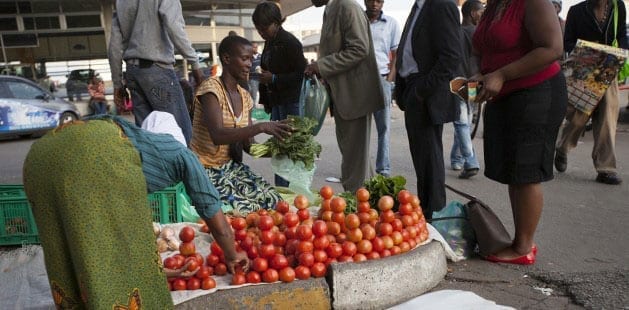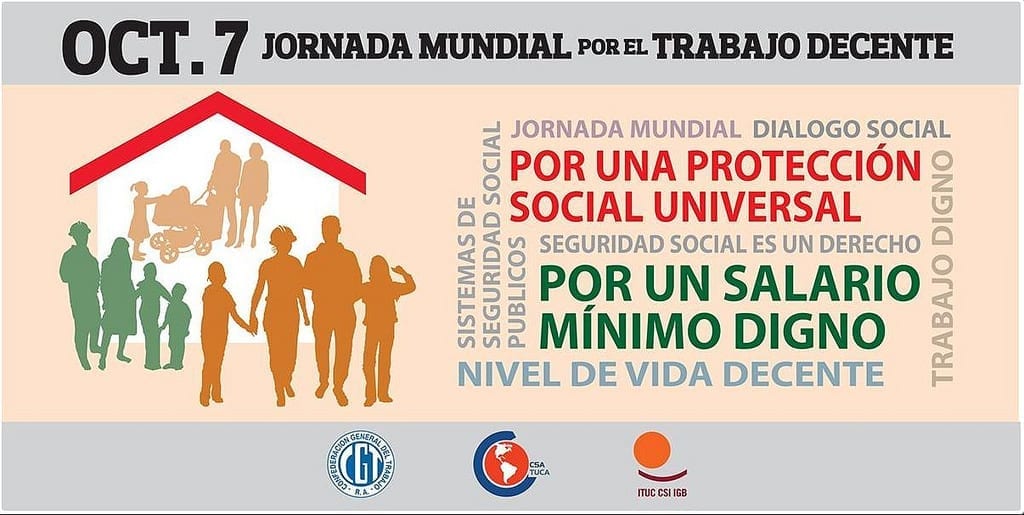In Zimbabwe, “there is no economy to talk about in the moment,” says Peter Mutasa, president of the Zimbabwe Congress of Trade Unions (ZCTU), a Solidarity Center ally. “Everyone is living on subsistence and selling in the streets. Those jobs are not paying. They don’t...

The Solidarity Center assists workers in the informal economy, such as market vendors in Zimbabwe, come together to assert their rights and raise living standards. Credit: ZCIEA
Some 2 billion people work in the informal sector as domestic workers, taxi drivers, and street vendors, many of them women workers. Informal economy work now comprises the majority of jobs in many countries and is increasing worldwide. Although informal economy workers can create up to half of a country’s gross national product, most have no access to health care, sick leave or support when they lose their jobs, and they have little power to advocate for living wages and safe and secure work.
The Solidarity Center is part of a broad-based movement in dozens of countries to help workers in the informal economy come together to assert their rights and raise living standards. For instance, three affiliates of the Central Organization of Trade Unions-Kenya (COTU-K), a Solidarity Center partner, signed agreements with informal worker associations to unionize the workers, enabling them to access to the country’s legal protections for formal-sector employees.
Find out more about informal workers gaining power by joining together in unions and worker associations in this Solidarity Center-supported publication, Informal Workers and Collective Action: A Global Perspective.
Zimbabwe Vendor Ban Targets Vulnerable Workers
The government in Zimbabwe is moving to ban market vendors in Harare at a time when more than 90 percent of the workforce labors in the informal economy and 85 percent or more Zimbabweans are seeking decent work. “People who are into street vending are not into it for...
Decent Work Day: Focus on Living Wages
When Mwahamisi Josiah Makori, a Kenyan mother of three who worked as a domestic worker in Saudi Arabia, first arrived at her new employer’s house, she was given only 20 minutes before she began work. After that, she began a three-month period which involved hard...
No Results Found
The page you requested could not be found. Try refining your search, or use the navigation above to locate the post.



